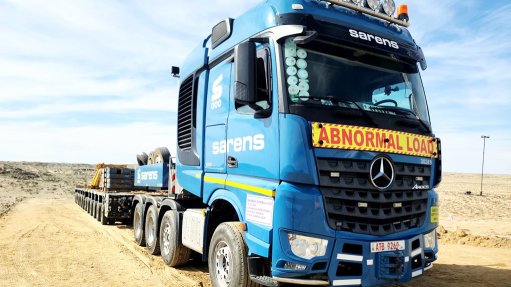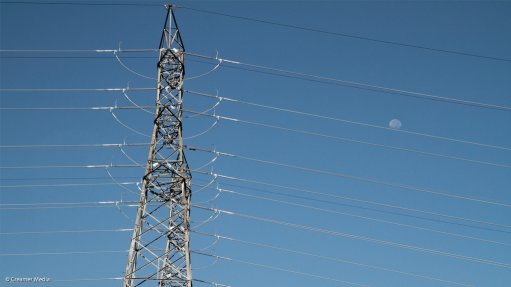Manufacturing sector investment to remain stable in Q2 – Manufacturing Circle
The Manufacturing Circle Investment Tracker (MCIT) for the first quarter of this year shows there has been investment into the manufacturing sector in the past 15 months, but that investment is declining.
Presenting key findings of the MCIT, in Centurion, on Tuesday, Manufacturing Circle executive director Philippa Rodseth noted that manufacturing companies expect investment to remain stable in the next quarter.
The composite index tracks investment trends in the manufacturing sector, focusing on actual expenditure patterns.
The sample size for the first quarter was smaller than usual and the majority of respondents, who have operations mainly in Gauteng, were in the iron and steel, nonferrous metal products, metal products and machinery and packaging sectors.
“Our members noted that cost savings and cutbacks in investment and capital expenditure have characterised the recent past. Where there has been investment, it has been for small projects, minor upgrades and required maintenance.
“Increases in salaries, wages and training have been in line with inflation rather than owing to greater investment or growth in [staff] complement,” Rodseth said.
According to the MCIT, the contraction in investment in the first quarter was mainly driven by a decrease in expenditure on the maintenance of existing plant and equipment and investment in new property, indicating a general cutback.
Expansion of existing property or buying new buildings remained fairly constant around the neutral 50-point mark, while spend on maintenance and replacement has been restricted to small projects.
Year-on-year expenditure on new plant and equipment remained above the 50-point mark in the first quarter of this year, but decreased by one index point year-on-year.
Expenditure on the maintenance of existing plant and equipment decreased by 15 index points from 70 points in the first quarter of 2017 to 55 points in the first quarter of this year.
“Some companies noted that they have restricted expenditure to small upgrades rather than any major capital improvement,” Rodseth said.
Expenditure on inventory mainly followed customer demand and remained above the 50-point neutral mark for the period from the first quarter of last year to the current quarter.
Owing to higher demand between the fourth quarter of 2017 and the first quarter of this year, inventory expenditure rose from 46 to 60.
The MCIT pointed out that manufacturers were anticipating a decrease in inventories in the second quarter.
“While not all respondents are involved in research and development, those that are have continued to have fairly low but constant expenditure in this area. Second-quarter forecasts indicate that firms expect a ten-index point increase in this area,” Rodseth noted.
Human capital was divided into two categories, namely expenditure on salaries and wages and expenditure on training and development.
The results showed that both areas had consistently been above the 50-point level for the past five quarters, as companies maintained their investment in talent, but it dropped slightly compared with the first quarter of 2017.
Expenditure on salaries and wages decreased by four points to 58 in the period under review, compared with 62 in the same period last year.
Rodseth pointed out that a year-on-year decrease of five index points in expenditure on training and development was observed, while the increase in investment on training and development in the first quarter of this year was an indication of new enrolments.
Manufacturers will increase expenditure on salaries and wages, in line with inflation, in the second quarter, and are intent on maintaining their expenditure on training and development at similar levels to the current quarter, the MCIT shows.
“We are encouraged that forecasts for the second quarter are not showing a decline and that optimism is evident. We hope that 2018 will show improvements in investments across the board,” Rodseth noted.
Article Enquiry
Email Article
Save Article
Feedback
To advertise email advertising@creamermedia.co.za or click here
Press Office
Announcements
What's On
Subscribe to improve your user experience...
Option 1 (equivalent of R125 a month):
Receive a weekly copy of Creamer Media's Engineering News & Mining Weekly magazine
(print copy for those in South Africa and e-magazine for those outside of South Africa)
Receive daily email newsletters
Access to full search results
Access archive of magazine back copies
Access to Projects in Progress
Access to ONE Research Report of your choice in PDF format
Option 2 (equivalent of R375 a month):
All benefits from Option 1
PLUS
Access to Creamer Media's Research Channel Africa for ALL Research Reports, in PDF format, on various industrial and mining sectors
including Electricity; Water; Energy Transition; Hydrogen; Roads, Rail and Ports; Coal; Gold; Platinum; Battery Metals; etc.
Already a subscriber?
Forgotten your password?
Receive weekly copy of Creamer Media's Engineering News & Mining Weekly magazine (print copy for those in South Africa and e-magazine for those outside of South Africa)
➕
Recieve daily email newsletters
➕
Access to full search results
➕
Access archive of magazine back copies
➕
Access to Projects in Progress
➕
Access to ONE Research Report of your choice in PDF format
RESEARCH CHANNEL AFRICA
R4500 (equivalent of R375 a month)
SUBSCRIBEAll benefits from Option 1
➕
Access to Creamer Media's Research Channel Africa for ALL Research Reports on various industrial and mining sectors, in PDF format, including on:
Electricity
➕
Water
➕
Energy Transition
➕
Hydrogen
➕
Roads, Rail and Ports
➕
Coal
➕
Gold
➕
Platinum
➕
Battery Metals
➕
etc.
Receive all benefits from Option 1 or Option 2 delivered to numerous people at your company
➕
Multiple User names and Passwords for simultaneous log-ins
➕
Intranet integration access to all in your organisation



















